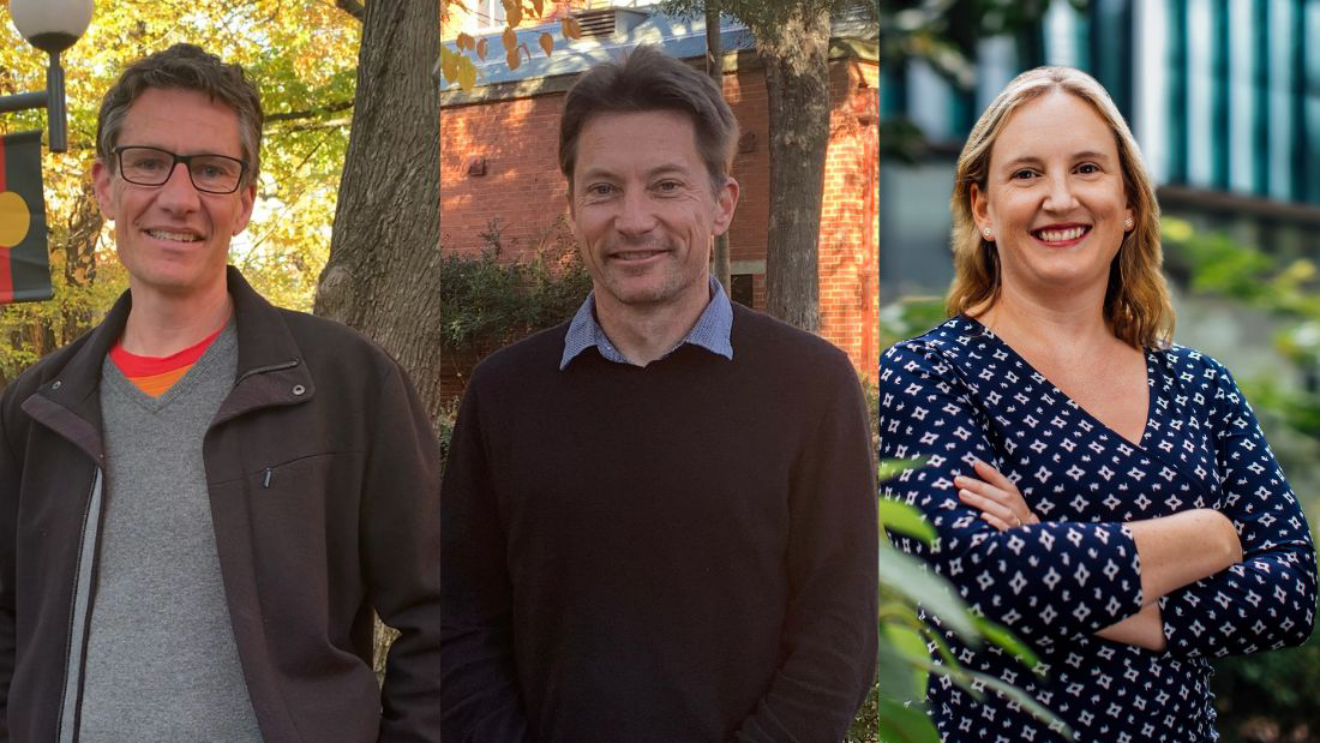


Professor Jacqueline Peel from the Melbourne Climate Futures research initiative and Professors Michael Kearney and James McCaw from the Faculty of Science were awarded the fellowships in recognition of the support they provide for early-career researchers and their outstanding research contribution for the benefit of national and international communities.
Professor Peel was awarded a Kathleen Fitzpatrick Australian Laureate Fellowship for research in the humanities, arts and social science disciplines. Professor Peel’s research aims to accelerate policy and law reform for rapidly reducing corporate emissions to net zero, transforming international law’s role in ensuring the delivery of companies' climate promises.
“It’s a great honour to receive this fellowship and to undertake this work, which aims to have a significant positive impact in addressing the climate crisis in Australia and globally. In addition to developing tools to accelerate climate policy and law reform, I am very proud to engage with and empower emerging female climate researchers of the Global South through the mentoring and capacity-building work the Kathleen Fitzpatrick Award enables.” Professor Peel said.
Professor Kearney, who received $3.7 million, will forge new collaborations between ecological and physical scientists to try to predict how Australia's major mammal and insect pests will respond to climate change.
"We will use computer modelling, field work and laboratory work to understand how pests in Australia - from plague locusts to foxes - will respond to climate change. The ARC Laureate is an exceptional opportunity to make significant advancements in science, and I’m looking forward to bringing a great team together to solve some critical problems for Australia’s biodiversity and agriculture. It is an enormous privilege to be chosen.” Professor Kearney said.
Professor McCaw, who received $3.5 million, will work to develop mathematical models that will help Australia respond to public health emergencies.
“My work will use mathematics to understand how infectious pathogens spread within the body and between hosts, to help Australia prepare and respond to pandemics and other communicable disease threats. We aim to better understand how novel drugs and vaccines can be used to reduce illness and slow transmission for infectious diseases like influenza and or malaria. Thank you to the ARC for this fellowship, which will support a large team to undertake new innovative mathematical and data-driven research, enabling us to think boldly, enhancing our understanding of infectious diseases and how we can combat them for them for the benefit of society.” Professor McCaw said.
The ARC Laureate Fellowships funds are awarded over five years to cutting edge senior researchers who can provide a supportive research environment for early career researchers and conduct research to benefit national and international communities. The program allows Fellows to design ambitious research programs around a team of postdoctoral fellows and postgraduate students to mentor Australia’s up-and-coming researchers.